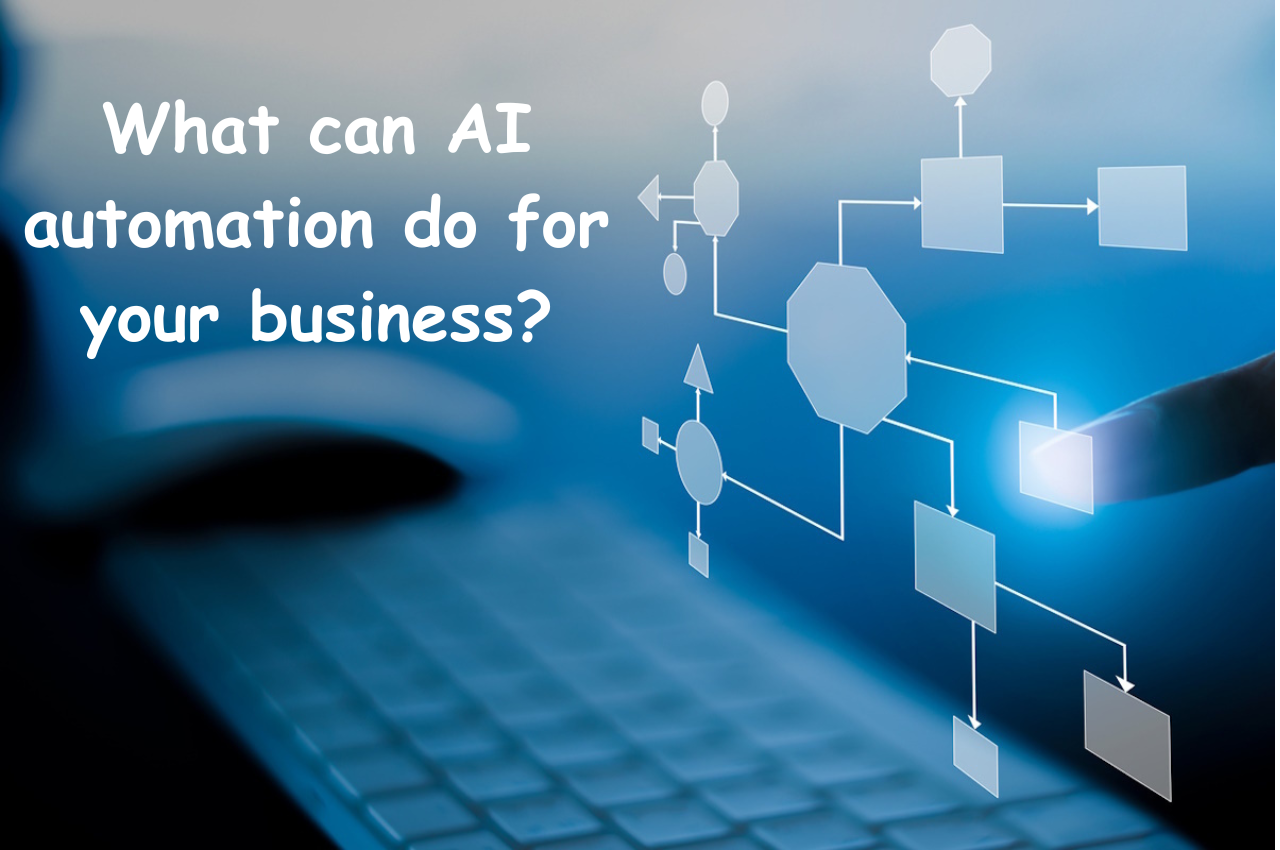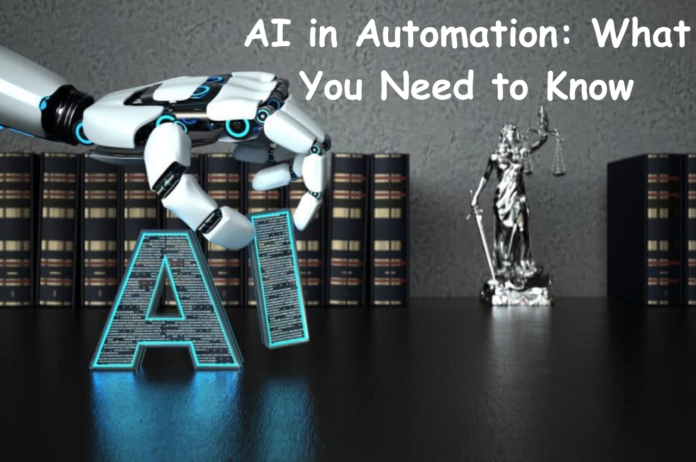Interested in business automation but not sure how artificial intelligence (AI) fits in? Today’s article from Technocommy explains what you need to know to get started with AI in automation. We will start by defining both automation and AI, so that you can get an idea about the whole topic very easily. Next, we’ll look at how AI can be used in automation and discuss when it works best. So let’s begin-
Thank you for reading this post, don't forget to subscribe!What is automation?
Consider any task or activity typically carried out by individuals in your industry. For instance, let’s consider the customer support team at an insurance company. They dedicate a significant amount of time to emailing customers, requesting necessary documents, and organizing relevant information for claims. Each claim follows a similar procedure, resulting in hours of repetitive tasks and monotonous data manipulation. Unfortunately, this approach is not scalable.
This is where automation comes into play: it involves replacing human involvement in completing tasks with software or other technology-based solutions. All those emails we mentioned earlier can be automatically handled, freeing up a substantial amount of manpower and significantly reducing the chances of errors.
The aforementioned example is just one instance of automation: the automation of specific tasks. It is also possible to connect these individual tasks to create end-to-end processes. Let’s revisit our insurance example. We can automate the handling of customer emails and extract crucial information, including details from attached documents.
Additional tasks may include updating internal systems, keeping customers informed about the progress, and even coordinating with third parties. With the appropriate platform, there are virtually no limits to the processes that can be automated. We have now reached a stage where we can automate every step involved in managing an insurance claim.
What is artificial intelligence?
AI has been a hot topic lately, especially in the realm of automation. Let’s take a moment to delve into the basics of AI before we proceed further. While the media often portrays AI as a superhuman intelligence, known as strong AI, it’s important to note that this is just one aspect of AI. However, strong AI remains a theoretical concept for now.
Despite the theoretical nature of strong AI, AI has shown its ability to outperform humans in various tasks. DeepMind, for example, has made significant strides in this area by defeating top human players in games like Chess, Go, and Starcraft. However, it’s crucial to understand that this type of AI is limited to solving specific problems and lacks the adaptability of the human brain. This is basically considered weak or narrow AI.
Weak AI mimics human-like intelligence in a particular task or problem-solving scenario. This type of AI is what powers most AI products available today and has immense potential in the field of automation when applied effectively.
AI as an automation tool
So, what is the role of AI in automation? We’re not referring to AI completely taking over and managing the entire business without any human involvement. It’s important to understand that current AI is highly effective in solving specific tasks, but it needs to be properly directed. Utilizing AI to handle repetitive tasks can help save human time and resources. In a previous discussion, we explored the use of AI in email reading. Now, let’s explore some other potential applications for automation-
- Photo categorization – top photo applications enable users to easily search for specific individuals or locations within their photo collections. This is made possible through the analysis and labeling of photos by artificial intelligence.
- Handwritten document data extraction – Utilizing AI technology, even the most illegible handwriting can be deciphered. This allows for the automatic extraction of information from paper forms submitted by clients, streamlining the process.
- License plate recognition – Automated gates at parking facilities can identify vehicles through their license plates.
- Round-the-clock customer self-service – AI systems are capable of managing customer inquiries at any time, addressing issues related to product availability, service inquiries, and order status updates automatically.
- Text classification based on content and sentiment – By automatically categorizing emails based on their content and tone, businesses can efficiently direct messages to the appropriate recipient and prioritize urgent emails that may impact the company’s reputation.
Remember, this is not a comprehensive list. The potential of AI is limited only by your creativity. With the right tools or collaborations, nearly any task can be automated.
AI can’t do everything
We need to understand very coldly, how AI works. While there are various models, machine learning (ML) powered by neural nets is currently the most prevalent. This model employs a network of algorithms to mimic the learning and problem-solving processes of the human brain.
Despite its immense capabilities, there is a significant drawback. It lacks explainability. In technical terms, this means that AI cannot elucidate why it made a specific decision. Due to the nature of neural nets, it is unable to offer a comprehensible justification for its actions.
If comprehending the rationale behind a decision is crucial, an alternative solution must be sought. For instance, when needing to clarify to a customer why their insurance claim was denied.
Please note that this does not eliminate the possibility of automation; there are numerous models that do not rely on neural nets and can provide explanations for their decisions.
How is AI changing the world?
AI excels in enhancing human efficiency in manual tasks and improving accuracy. Moreover, it aids in making informed decisions by swiftly processing vast data sets.
The rise of innovative AI applications is reshaping various sectors. According to Grand View Research, the global AI market was valued at around $62.4 billion in 2020. The industry is projected to grow rapidly, with a CAGR of 40.2% from 2021 to 2028.
What can AI automation do for your business?
According to Semrush, the average company will have 78 AI projects in place by the end of 2024. This statistic highlights the rapid adoption of AI technology in the global workplace. To ensure your company remains future-proof, it is crucial to consider automating various business processes.  However, there’s no need to worry! We understand that tackling this task alone can be overwhelming, especially if you don’t have the time to delve into the technical intricacies. That’s why it’s advisable to collaborate with a reputable platform that specializes in AI implementation. Numerous companies are available to assist you in setting up AI systems that automate your workflow, resulting in tangible benefits for your business.
However, there’s no need to worry! We understand that tackling this task alone can be overwhelming, especially if you don’t have the time to delve into the technical intricacies. That’s why it’s advisable to collaborate with a reputable platform that specializes in AI implementation. Numerous companies are available to assist you in setting up AI systems that automate your workflow, resulting in tangible benefits for your business.
More Info: How to Implement AI and Automation in Your Business
By embracing automation, you can save valuable time, reduce costs, and enhance the overall customer experience. If you’re intrigued by the possibilities, we encourage you to reach out to us. Let’s have a discussion about how our expertise can help your company fully embrace and reap the benefits of AI in automation.
Final thoughts
After finishing reading today’s article on AI in Automation, you must have understood how AI is used in automation and why people are so excited about it. AI is not a tool that simply replaces all members of your team. When implemented effectively, it can lead to significant enhancements in accuracy and efficiency.
You are now equipped to begin the automation of your business operations. Apply the knowledge you have acquired to identify processes that could be enhanced through automation. Alternatively, opt for the simpler route and allow us to assist you every step of the way. Embrace the future of work.


